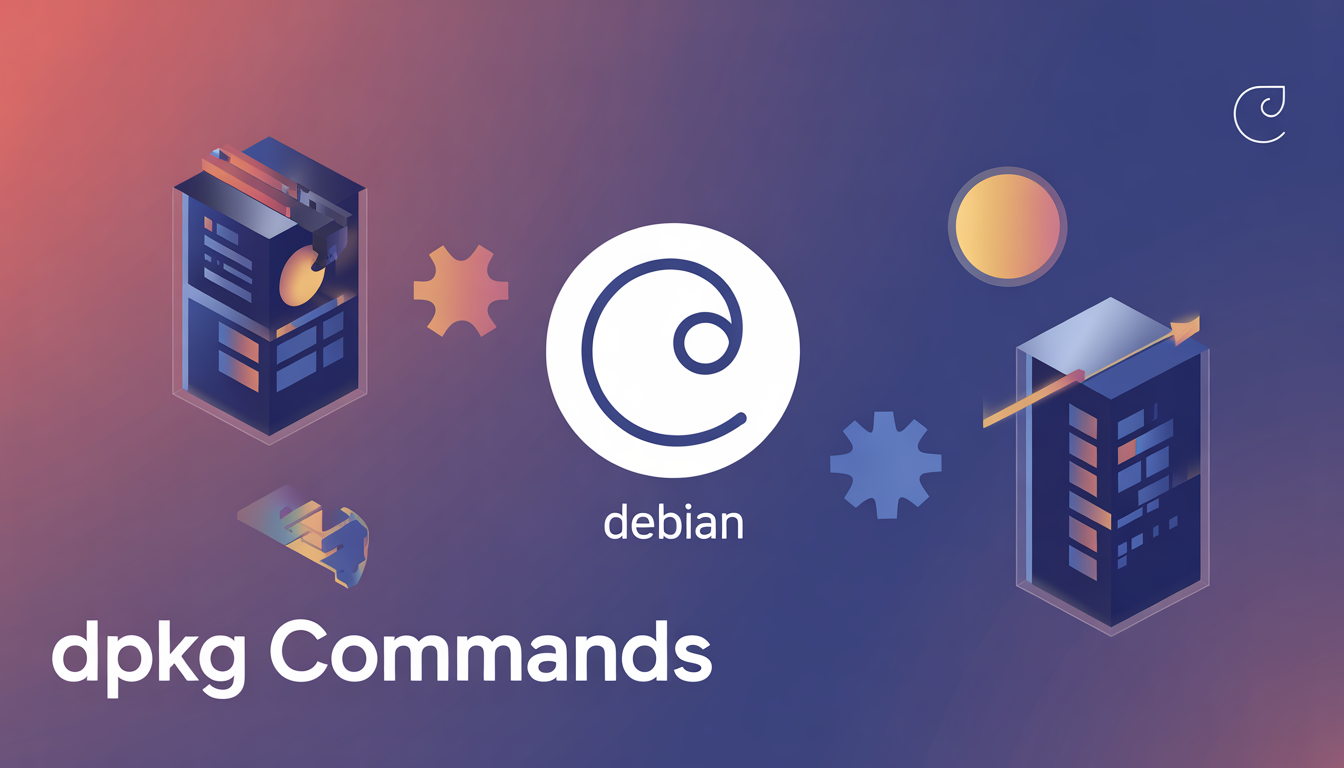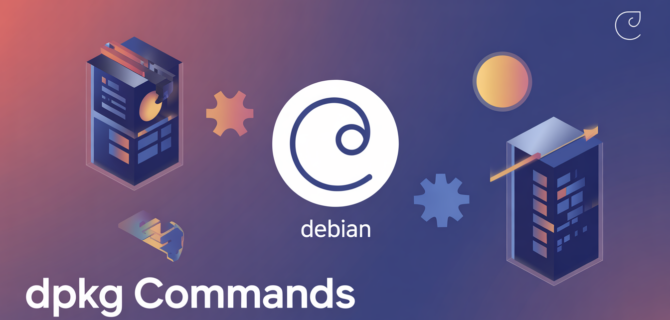Debian GNU/Linux, the mother Operating System of a number of Linux distributions including Knoppix, Kali, Ubuntu, Mint, etc. uses various package Manager like dpkg, apt, aptitude, synaptic, tasksel, deselect, dpkg-deb and dpkg-split.
We will be describing each of these briefly before focusing on ‘dpkg‘ command.
APT Command
Apt stands for Advanced Package Tool. It doesn’t deal with ‘deb‘ package and works directly, but works with ‘deb‘ archive from the location specified in the “/etc/apt/sources.list” file.
Read More : 25 Useful Basic Commands of APT-GET Commands
Aptitude
Aptitude is a text based package manager for Debian which is front-end to ‘apt‘, which enables user to manage packages easily.
Synaptic
Graphical package manager which makes it easy to install, upgrade and uninstall packages even to novice.
Tasksel
Tasksel lets the user to install all the relevant packages related to a specific task, viz., Desktop-environment.
Deselect
A menu-driven package management tool, initially used during the first time install and now is replaced with aptitude.
Dpkg-deb
Interacts with Debian archive.
Dpkg-split
Useful in splitting and merging large file into chunks of small files to be stored on media of smaller size like floppy-disk.
Dpkg Command
dpkg is the main package management program in Debian and Debian based System. It is used to install, build, remove, and manage packages. Aptitude is the primary front-end to dpkg.

Some the most commonly used dpkg commands along with their usages are listed here:
1. Install a Package
For installing an “.deb” package, use the command with “-i” option. For example, to install an “.deb” package called “flashpluginnonfree_2.8.2+squeeze1_i386.deb” use the following command.
[root@~]# dpkg -i flashpluginnonfree_2.8.2+squeeze1_i386.deb
Selecting previously unselected package flashplugin-nonfree. (Reading database ... 465729 files and directories currently installed.) Unpacking flashplugin-nonfree (from flashplugin-nonfree_3.2_i386.deb) ... Setting up flashplugin-nonfree (1:3.2) ... --2013-10-01 16:23:40-- http://fpdownload.macromedia.com/get/flashplayer/pdc/11.2.202.310/install_flash_player_11_linux.i386.tar.gz Resolving fpdownload.macromedia.com (fpdownload.macromedia.com)... 23.64.66.70 Connecting to fpdownload.macromedia.com (fpdownload.macromedia.com)|23.64.66.70|:80... connected. HTTP request sent, awaiting response... 200 OK Length: 6923724 (6.6M) [application/x-gzip] Saving to: ‘/tmp/flashplugin-nonfree.FPxQ4l02fL/install_flash_player_11_linux.i386.tar.gz’
2. List all the installed Packages
To view and list all the installed packages, use the “-l” option along with the command.
[root@~]# dpkg -l
Desired=Unknown/Install/Remove/Purge/Hold | Status=Not/Inst/Conf-files/Unpacked/halF-conf/Half-inst/trig-aWait/Trig-pend |/ Err?=(none)/Reinst-required (Status,Err: uppercase=bad) ||/ Name Version Architecture Description +++-======================================-========================-=============================================================================== ii accerciser 3.8.0-0ubuntu1 all interactive Python accessibility explorer for the GNOME desktop ii account-plugin-aim 3.6.4-0ubuntu4.1 i386 Messaging account plugin for AIM ii account-plugin-facebook 0.10bzr13.03.26-0ubuntu1 i386 GNOME Control Center account plugin for single signon - facebook ii account-plugin-flickr 0.10bzr13.03.26-0ubuntu1 i386 GNOME Control Center account plugin for single signon - flickr ii account-plugin-generic-oauth 0.10bzr13.03.26-0ubuntu1 i386 GNOME Control Center account plugin for single signon - generic OAuth ii account-plugin-google 0.10bzr13.03.26-0ubuntu1 i386 GNOME Control Center account plugin for single signon rc account-plugin-identica 0.10bzr13.03.26-0ubuntu1 i386 GNOME Control Center account plugin for single signon - identica ii account-plugin-jabber 3.6.4-0ubuntu4.1 i386 Messaging account plugin for Jabber/XMPP ....
To view a specific package installed or not use the option “-l” along with package-name. For example, check whether apache2 package installed or not.
[root@~]# dpkg -l apache2
Desired=Unknown/Install/Remove/Purge/Hold | Status=Not/Inst/Conf-files/Unpacked/halF-conf/Half-inst/trig-aWait/Trig-pend |/ Err?=(none)/Reinst-required (Status,Err: uppercase=bad) ||/ Name Version Architecture Description +++-======================================-========================-============================================== ii apache2 2.2.22-6ubuntu5.1 i386 Apache HTTP Server metapackage
3. Remove a Package
To remove the “.deb” package, we must specify the package name “flashpluginnonfree“, not the original name “flashplugin-nonfree_3.2_i386.deb“. The “-r” option is used to remove/uninstall a package.
[root@~]# dpkg -r flashpluginnonfree
(Reading database ... 142891 files and directories currently installed.) Removing flashpluginnonfree ... Processing triggers for man-db ... Processing triggers for menu ... Processing triggers for desktop-file-utils ... Processing triggers for gnome-menus ...
You can also use ‘p‘ option in place of ‘r’ which will remove the package along with configuration file. The ‘r‘ option will only remove the package and not configuration files.
[root@~]# dpkg -p flashpluginnonfree
4. View the Content of a Package
To view the content of a particular package, use the “-c” option as shown. The command will display the contents of a “.deb” package in long-list format.
[root@~]# dpkg -c flashplugin-nonfree_3.2_i386.deb
drwxr-xr-x root/root 0 2012-12-14 22:54 ./ drwxr-xr-x root/root 0 2012-12-14 22:54 ./usr/ drwxr-xr-x root/root 0 2012-12-14 22:54 ./usr/bin/ drwxr-xr-x root/root 0 2012-12-14 22:54 ./usr/lib/ drwxr-xr-x root/root 0 2012-12-14 22:54 ./usr/lib/mozilla/ drwxr-xr-x root/root 0 2012-12-14 22:54 ./usr/lib/mozilla/plugins/ drwxr-xr-x root/root 0 2012-12-14 22:54 ./usr/lib/flashplugin-nonfree/ -rw-r--r-- root/root 3920 2009-09-09 22:51 ./usr/lib/flashplugin-nonfree/pubkey.asc drwxr-xr-x root/root 0 2012-12-14 22:54 ./usr/share/ drwxr-xr-x root/root 0 2012-12-14 22:54 ./usr/share/man/ drwxr-xr-x root/root 0 2012-12-14 22:54 ./usr/share/man/man8/ -rw-r--r-- root/root 716 2012-12-14 22:54 ./usr/share/man/man8/update-flashplugin-nonfree.8.gz drwxr-xr-x root/root 0 2012-12-14 22:54 ./usr/share/applications/ drwxr-xr-x root/root 0 2012-12-14 22:54 ./usr/share/icons/ drwxr-xr-x root/root 0 2012-12-14 22:54 ./usr/share/icons/hicolor/ drwxr-xr-x root/root 0 2012-12-14 22:54 ./usr/share/icons/hicolor/24x24/ ....
5. Check a Package is installed or not
Using “-s” option with package name, will display whether an deb package installed or not.
[root@~]# dpkg -s flashplugin-nonfree
Package: flashplugin-nonfree Status: install ok installed Priority: optional Section: contrib/web Installed-Size: 177 Maintainer: Bart Martens <root@> Architecture: i386 Version: 1:3.2 Replaces: flashplugin (<< 6) Depends: debconf | debconf-2.0, wget, gnupg, libatk1.0-0, libcairo2, libfontconfig1, libfreetype6, libgcc1, libglib2.0-0, libgtk2.0-0 (>= 2.14), libnspr4, libnss3, libpango1.0-0, libstdc++6, libx11-6, libxext6, libxt6, libcurl3-gnutls, binutils Suggests: iceweasel, konqueror-nsplugins, ttf-mscorefonts-installer, ttf-dejavu, ttf-xfree86-nonfree, flashplugin-nonfree-extrasound, hal Conflicts: flashplayer-mozilla, flashplugin (<< 6), libflash-mozplugin, xfs (<< 1:1.0.1-5) Description: Adobe Flash Player - browser plugin ...
6. Check the location of Packages installed
To list location of files to be installed to your system from package-name.
[root@~]# dpkg -L flashplugin-nonfree
/. /usr /usr/bin /usr/lib /usr/lib/mozilla /usr/lib/mozilla/plugins /usr/lib/flashplugin-nonfree /usr/lib/flashplugin-nonfree/pubkey.asc /usr/share /usr/share/man /usr/share/man/man8 /usr/share/man/man8/update-flashplugin-nonfree.8.gz /usr/share/applications /usr/share/icons /usr/share/icons/hicolor ...
7. Install all Packages from a Directory
Recursively, install all the regular files matching pattern “*.deb” found at specified directories and all of its subdirectories. This can be used with “-R” and “–install” options. For example, I will install all the “.deb” packages from the directory called “debpackages“.
[root@~]# dpkg -R --install debpackages/
(Reading database ... 465836 files and directories currently installed.) Preparing to replace flashplugin-nonfree 1:3.2 (using .../flashplugin-nonfree_3.2_i386.deb) ... Unpacking replacement flashplugin-nonfree ... Setting up flashplugin-nonfree (1:3.2) ... Processing triggers for man-db ... Processing triggers for bamfdaemon ... Rebuilding /usr/share/applications/bamf-2.index... Processing triggers for gnome-menus ...
8. Unpack the Package but dont’ Configure
Using action “–unpack” will unpack the package, but it will don’t install or configure it.
[root@~]# dpkg --unpack flashplugin-nonfree_3.2_i386.deb
(Reading database ... 465836 files and directories currently installed.) Preparing to replace flashplugin-nonfree 1:3.2 (using flashplugin-nonfree_3.2_i386.deb) ... Unpacking replacement flashplugin-nonfree ... Processing triggers for man-db ... Processing triggers for bamfdaemon ... Rebuilding /usr/share/applications/bamf-2.index... Processing triggers for gnome-menus ...
9. Reconfigure a Unpacked Package
The option “–configure” will reconfigure a already unpacked package.
[root@~]# dpkg --configure flashplugin-nonfree
Setting up flashplugin-nonfree (1:3.2) ...
10. Replace available Package information
The “–-update-avail” option replace the old information with the available information in the Packages file.
[root@~]# dpkg –-update-avail package_name
11. Erase Existing Available information of Package
The action “–clear-avaial” will erase the current information about what packages are available.
[root@~]# dpkg –-clear-avail
12. Forget Uninstalled and Unavailable Packages
The dpkg command with option “–forget-old-unavail” will automatically forget uninstalled and unavailable packages .
[root@~]# dpkg --forget-old-unavail
13. Display dpkg Licence
[root@~]# dpkg --licence
14. Display dpkg Version
The “–version” argument will display dpkg version information.
[root@~]# dpkg –version
Debian `dpkg' package management program version 1.16.10 (i386). This is free software; see the GNU General Public License version 2 or later for copying conditions. There is NO warranty.
15. Get all the Help about dpkg
The “–help” option will display a list of available options of dpkg command.
[root@~]# dpkg –help
Usage: dpkg [<option> ...] <command> Commands: -i|--install <.deb file name> ... | -R|--recursive <directory> ... --unpack <.deb file name> ... | -R|--recursive <directory> ... -A|--record-avail <.deb file name> ... | -R|--recursive <directory> ... --configure <package> ... | -a|--pending --triggers-only <package> ... | -a|--pending -r|--remove <package> ... | -a|--pending -P|--purge <package> ... | -a|--pending --get-selections [<pattern> ...] Get list of selections to stdout. --set-selections Set package selections from stdin. --clear-selections Deselect every non-essential package. --update-avail <Packages-file> Replace available packages info. --merge-avail <Packages-file> Merge with info from file. --clear-avail Erase existing available info. --forget-old-unavail Forget uninstalled unavailable pkgs. -s|--status <package> ... Display package status details. ...
That’s all for now. I’ll soon be here again with another interesting article. If I’ve missed any command in the list do let me know via comments. Till then, Stay tuned and Keep connected to Tecmint. Like and share us and help us spread. Don’t forget to mention your valuable thoughts in comment.
Source: tecmint.com





Thank you, I’ve just been searching for information about this subject for ages and yours is the greatest I have discovered till now. But, what about the bottom line? Are you sure about the source?